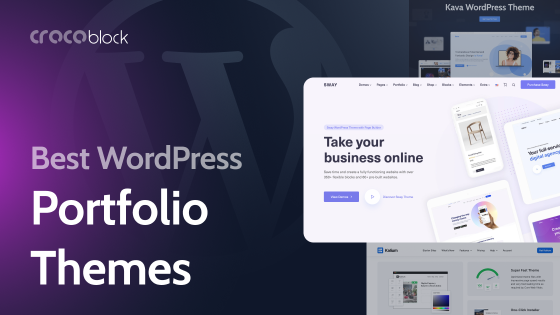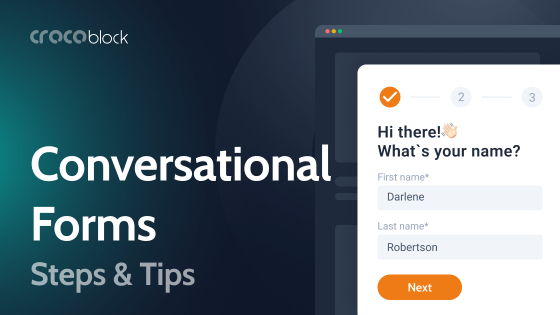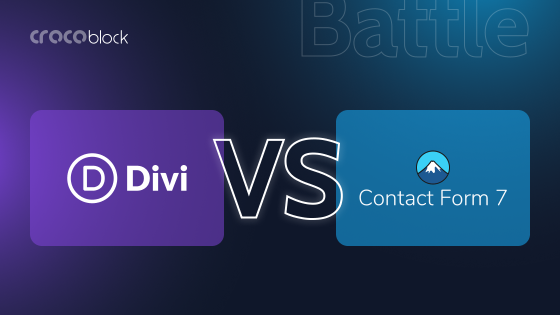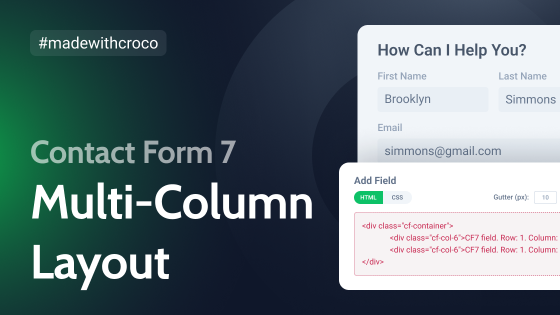Much of the web is coded using PHP, including Facebook, Wikipedia, Etsy, Slack, and of course, my favorite — WordPress.
But the great thing about PHP is that you don’t necessarily need to code everything from scratch. Instead, you can make things a lot easier for yourself by using a PHP framework, and thankfully there are some excellent ones available.
What is a PHP Framework?
A PHP framework is a platform for building PHP web applications. PHP frameworks offer code libraries for frequently used functions, reducing the amount of original code you must write.
Using a PHP framework has some clear advantages:
- Save time — PHP libraries have built-in libraries for common tasks, which means you write less original code. This will save you much time compared to writing all the code yourself.
- Follow best practices — PHP frameworks typically adhere to best practices for coding. For instance, they neatly group code into several directories based on function.
- More secure — Although using a PHP framework is no substitute for writing secure code, it does reduce the likelihood of being hacked. A good framework has data sanitization built into it, which protects against common threats.
- Improved teamworking — Using a framework gives your project very specific ground rules. So even if there is a different developer who isn’t familiar with the framework, they ought to be able to pick it up quickly and collaborate.
- Easier maintenance — PHP frameworks support DRY development (Don’t Repeat Yourself) and encourage code refactoring. Less maintenance is required because the codebase is leaner. Additionally, the developers will maintain the fundamental framework, so you won’t have to.
5 of the Best PHP Frameworks
There are many PHP frameworks out there. In fact, Wikipedia lists 40 of them. But if I write about all 40, that will be no help to you, so here is my selection of five of the best PHP frameworks.
Laravel
🏆 Best for security features like authentication and authorization.
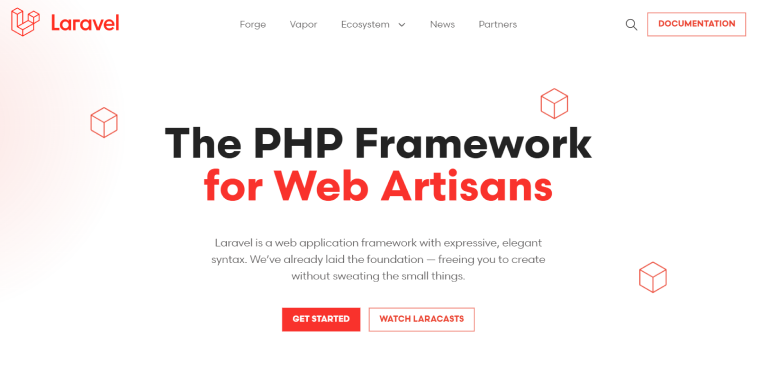
Laravel is advertised as “The PHP Framework for Web Artisans” and was created in 2011 by Taylor Otwell. It is the most popular free PHP framework in the world, can help secure web applications, and is very fast.
Routing, sessions, caching, and authentication are just a few of the routine tasks that Laravel improves for developers. In addition to using it with frontend JavaScript frameworks like Vue.js or React, it offers a PHP template engine called Blade.
Key features:
- Eloquent ORM enables you to query and update data easily.
- Queues allow you to perform slow tasks in the background while maintaining fast response times.
- Create excellent real-time applications while powering your WebSockets with pure PHP.
- Secure, session-based authentication, plus authentication for APIs and mobile applications.
Laravel has an average rating of 9 out of 10 from 88 reviews on trustradius.com.
Pros:
- Extensible.
- It integrates well with other platforms and services.
- It can handle complex web applications securely.
- Easy to use.
- Very fast.
Cons:
- You may find the framework is too strict in how to set it up.
Symfony
🏆 Best for scalable websites and apps.
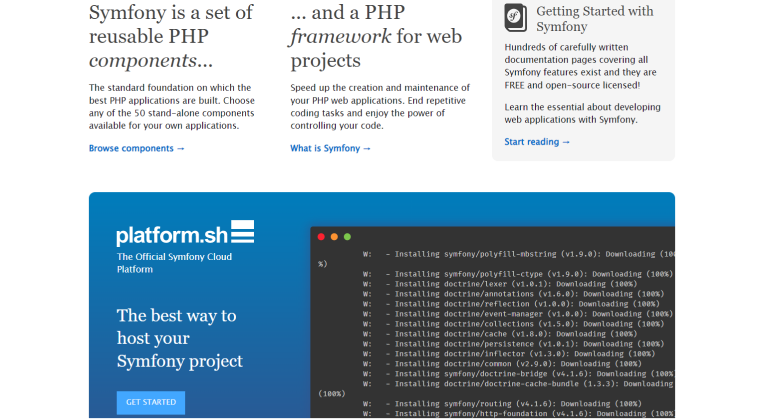
For creating complex enterprise projects, Symfony is ideal. Installation and configuration are simple and can be integrated with larger applications like Drupal. Additionally, it offers stability, adherence to most online best practices and design patterns, database engine independence, and support for integration with other vendor libraries.
Key features:
- Model-View-Controller based system
- Sessions management, error logging, and flexible URI routing
- Reusable and easier-to-maintain code
- It has a large community
- Full-featured database classes which support multiple platforms
- Security prevents attacks such as cross-site request forgery
Symfony has an average rating of 9 out of 10 from 27 reviews on trustradius.com.
Pros:
- It does everything you need a PHP framework to do.
- Because it’s a fully modular library, you can use individual parts and add them to other systems.
- It works well with other code.
Cons:
- Occasionally, it has security issues, but these are usually fixed quickly.
CodeIgniter
🏆 Best for lightweight apps.
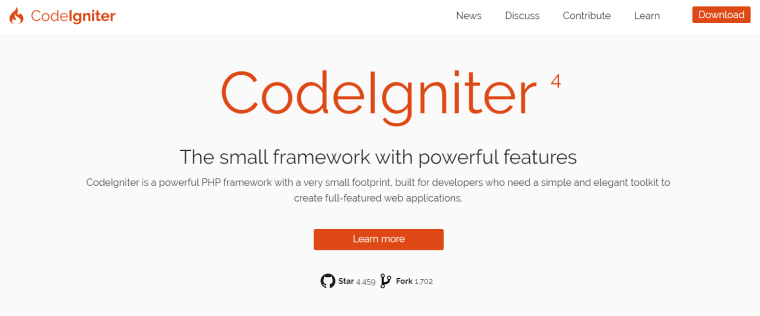
CodeIgniter is an extremely simple and lightweight PHP framework that is easy to install and great for building scalable apps. It’s perfect for beginners due to its straightforward setup procedure and thoroughly documented instructions.
The MVC architecture, excellent error handling, built-in security measures, and clear and comprehensive documentation are important features. Also, CodeIgniter is a great deal faster than competing frameworks. It’s an excellent option if you want to create lightweight apps that can run on low-powered servers while providing reliable performance.
A word of warning, though: Because of its patchy release schedule, CodeIgniter isn’t the best choice for applications that demand high levels of security.
Key features:
- MVC architecture.
- Excellent error handling.
- Built-in security tools.
- You can use it to create scalable apps.
CodeIgniter has an average rating of 7.5 out of 10 from 36 reviews on trustradius.com.
Pros:
- Very fast.
- Strong security.
- Light footprint — only 1.2MB download.
- Flexible — you can use the MVC architecture, but you don’t have to.
Cons:
- Releases can be somewhat irregular.
Laminas Project
🏆 Best for complex, enterprise-level projects.
The open-source successor to Zend Framework, Laminas Project, is a fully object-oriented framework that is expandable due to the use of features like inheritance and interfaces. It was created using the Agile methodology, which enables you to provide enterprise clients with apps of the finest quality. Developers who want to implement project-specific capabilities should note that Laminas Project is extremely adaptable and follows PHP best practices.
Key features:
- MVC components.
- Simple cloud API.
- Data encryption.
- Session management.
- Can integrate with third-party PHP libraries.
Laminas Project has an average rating of 7 out of 10 from 15 reviews on trustradius.com.
Pros:
- It has had over 570 million installations and is the most used PHP framework by enterprises.
- You can use its code in other frameworks without any problems.
- As with Symfony, it is modular, so you can just use the components you need.
- It has an active community.
Cons:
- It has a steeper learning curve than other frameworks.
Yii Framework
🏆 Best for rapid development of large-scale web applications.
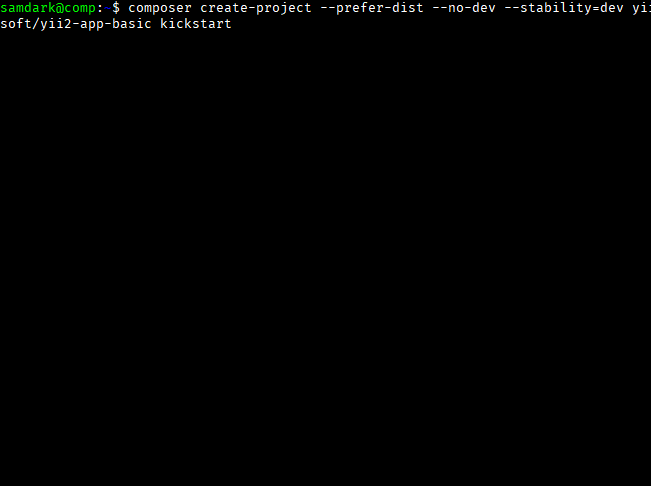
Yii, which stands for Yes, it is!, is an evolving and simple framework. It is a high-performance PHP framework for creating contemporary online apps. Yii is a universal web programming framework that may be used for any type of PHP project, although it is particularly recommended for the quick creation of large web applications.
Key features:
- Based on OOPS concepts and uses some advanced PHP features.
- Allows the use of third-party libraries.
- Integrated with Codeception for easy testing.
- Save time on repetitive tasks with templates.
- The database can be modeled in terms of objects rather than long SQL statements.
- A layered caching system supports data caching, fragment caching, dynamic content, and page caching.
Yii has an average rating of 6.9 out of 10 from 10 reviews on trustradius.com.
Pros:
- Fully MVC and object-oriented.
- It offers many components for building any application quickly.
- Excellent documentation.
- Easy to use.
Cons:
- The view template engine is a bit too simple.
FAQ
PHP frameworks are platforms for building PHP web applications. By offering code libraries for frequently used functions, PHP frameworks enable you to write less original code, thus helping save you time.
There are many PHP frameworks available. Wikipedia lists 40 of them, but there will be more than that.
Since its debut in 2011, Laravel has grown to be the most widely used free and open-source PHP framework.
Even beginners to programming will find Laravel’s expressive and elegant syntax easy to use. The model-view-controller (MVC) architectural pattern on which the framework is built makes it easier to handle complicated, big-project initiatives. A large variety of libraries, tools, and templates are also provided.
Which is the Best PHP Framework?
Overall, the best PHP framework is Laravel. Created in 2011 by Taylor Otwell, it is the most popular free PHP framework in the world, can handle secure web applications securely, and is very fast. It is extensible, integrates well with other platforms and services, and is easy to use, even if you are a beginner to programming.
I hope you found this review of the popular PHP frameworks helpful.
